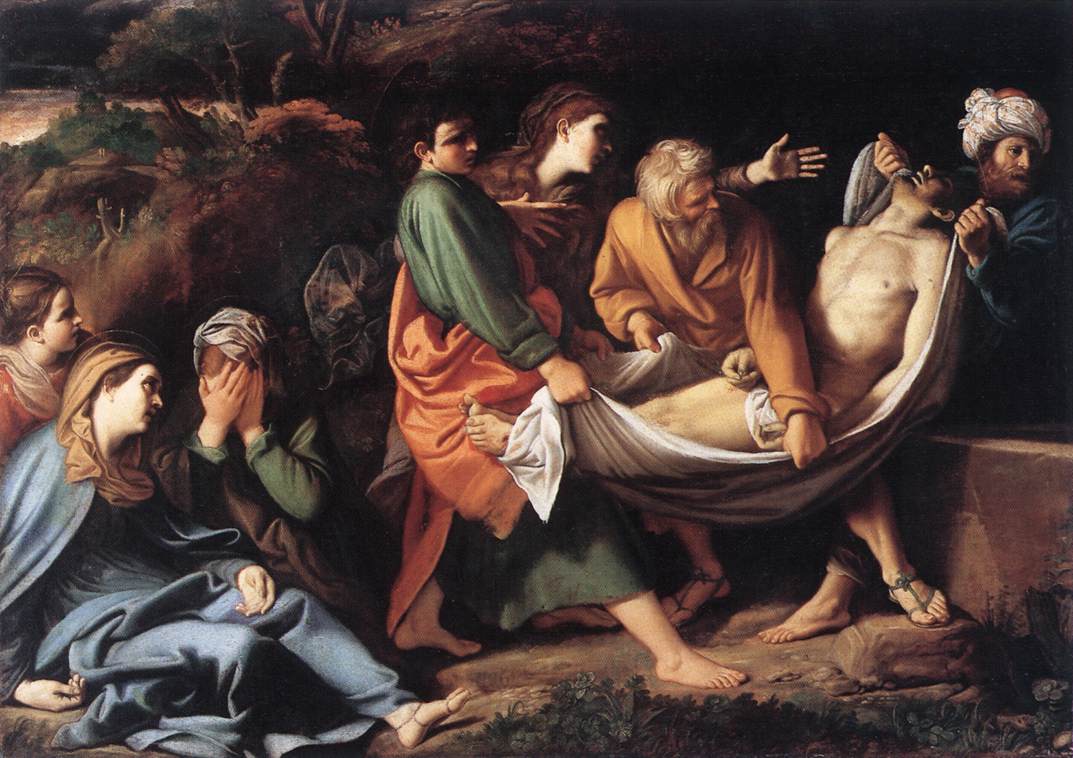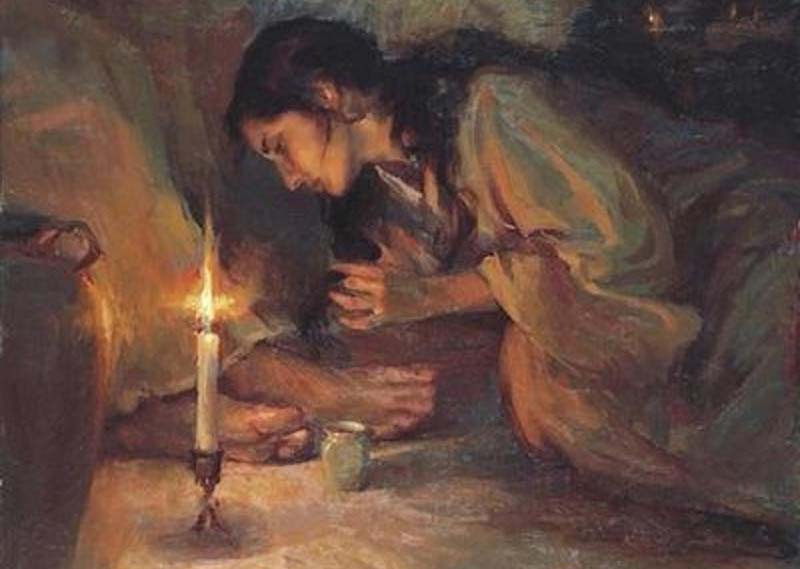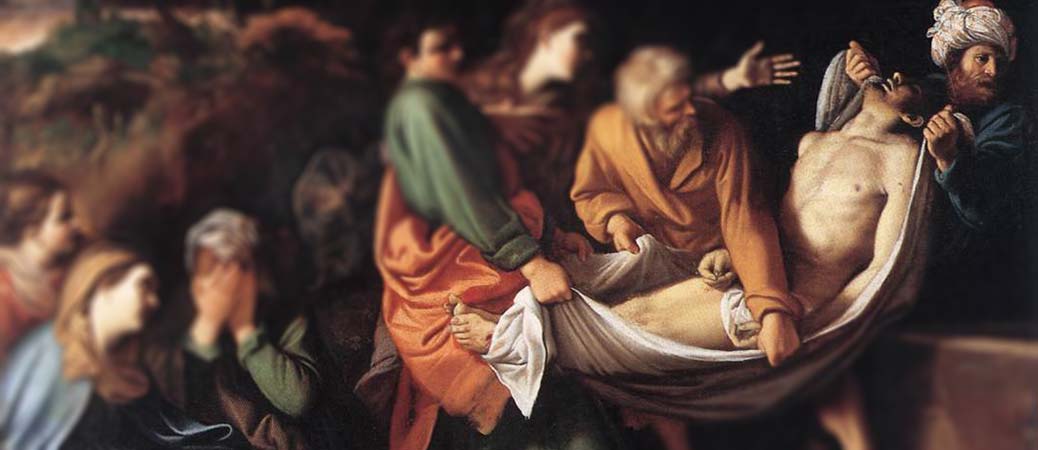The burial of Jesus is described in all four Gospels. This is without a doubt the most famous funeral the world has ever known.
As we look at the Scriptural account of Jesus’ death and burial, what can we learn about how to plan a Christian funeral? How do we think through our own expenses, planning, and memorials from the vantage point of Jesus’ burial?
How Much Should Christians Spend on a Loved One’s Funeral?
People spend a lot of money on funerals and memorial services. Statistics indicate that the average cost of a casketed funeral is about $7,000-$8,000, while the more affordable cremation funeral service averages between $4,000-$6,000.
These are base prices from the funeral home, and don’t include the many additional costs like flowers, catering, and many other memorial add-ons.
And there are many add-ons available! That’s because when a loved one dies their family members want them to be remembered well.
For some, that means upgrading everything — the casket, the hearse, the reception centerpiece, etc – to the premium, high-end version. For others, it means memorably outlandish events like a Viking send-off or turning cremated remains into fireworks.
Why do we do this? Even if the deceased specifically asked for the simplest, most basic funeral, we’re always tempted to get the most expensive flowers or add any number of options presented at the funeral home.
We feel guilty if we say no to anything. It’s as if the test of our love is how much we’re willing to spend (or go into debt!) on behalf of our departed loved one.
There’s an element of truth in all this. As Jesus’ famous maxim goes, “Where your treasure is, there your heart will be also.” If we treasure our loved ones, we won’t be misers about using our worldly treasure to honor their memories.
So, yes, there is a sense in which it is normal, acceptable, and even good to express your love through the things you buy for the funeral.
Urns Made in the USA
The Burial of Jesus
You can see an example of this in history’s most famous funeral: The burial of Jesus.
Two thousand years ago in a middle eastern district of the Roman Empire, a carpenter-turned-teacher caused some controversy in the local religious scene by teaching about a new kingdom.
He called it “the kingdom of heaven.“
This man worked miracles, healing the disabled and calming storms and turning water into wine. He raised a man from the dead.
For another one claimed by the grave too soon – a young girl, the first fairy-tale princess – he turned death into a peaceful slumber, and she awoke when her True Love took her by the hand.
He fed the hungry, he feasted with the undesirables, he welcomed children.
Jesus turned traditions upside-down and got on the wrong side of the local religious authorities. He was branded a religious criminal, accused by false witnesses, rushed through a kangaroo court, tortured, and then finally murdered by being nailed to a wooden beam.
After hours of literally suffocating agony, Jesus of Nazareth, the Son of God, cried out for his murderers’ forgiveness and with his last breath proclaimed, “It is finished.“
Thus began the world’s most famous funeral.

As prophesied hundreds of years earlier by Isaiah, a rich man from Arimathea named Joseph took Jesus’ body, wrapped it in clean linen, and laid it in his own private tomb.
Another man of some means, Nicodemus, brought 75 pounds of burial spices which they used in wrapping the body. They laid him in the tomb, rolled a stone in front of it, and that was it.
Well, almost. There was still some work to be done on the body, but the Sabbath day was about to begin. In fulfillment of the Scriptures, it was a day of rest.
Jesus’ Funeral Costs – And Ours
Jesus was not a rich man, and by all indications his family was far from wealthy. As far as we know, Jesus’ family did not contribute to the burial expenses.
Does that mean they loved him any less?
Jesus’ mother was there at his death, and Jesus’ brothers ended up recognizing him as their Lord. Did they need to prove their love through elaborate purchases? Is Jesus’ the most famous funeral in the world because of how lavish it was?
On the other hand, love and respect for Jesus was shown in expensive funeral provisions.
A private grave hewn from stone was an expensive gift, reserved for rich men like Joseph of Arimathea. The seventy-five pounds of spices from Nicodemus was also a lavish gesture – the average Jewish funeral of the day probably used around 5 lbs of spices. The ancient historian Josephus tells of the famous rabbi Gamaliel’s burial involving 40 lbs of spices, so 75 lbs is rather exorbitant.
One other funeral gift was given, but it was given prior to Jesus’ death.
The famous story of the prostitute who anointed Jesus for burial is well-known. This woman, who hardly could have been called rich, used an entire flask of “very costly” ointment and poured it over Jesus’ head.
When his disciples objected to what they considered a wasteful gesture, Jesus told them off and expressed his approval by calling it “a beautiful thing.“

So we see three different examples of expenses for the funeral of Jesus.
- We have the lower-to-middle class family members who can’t afford to spend much, and therefore do not.
- We have two rich individuals who contribute according to their means (though no doubt there was great sacrifice in each of these two gifts, both financially and in terms of their public reputations in associating with a condemned criminal).
- Finally, we see a poor woman who gives well beyond her means.
What Christians Can Learn From the Funeral of Jesus
A few thoughts on what we can glean from the death and burial of Jesus:
Death is not final. Jesus’ death is the most famous event in history because he rose again. His comment about the little girl who died (“Do not weep, for she is not dead but sleeping”) is not an aside but rather the life-changing conclusion for anyone whom Jesus touches. Those who cling to Christ do not truly die. The grave is but a resting place, a respite on our way to the final resurrection.
The King of Kings died humbly, and we can too. Jesus called for everyone to follow him, giving up earthly treasures and finding true treasure in heaven. Yes, Jesus received rich gifts upon his death from those who had the resources, but their tributes had much to do with recognizing and acknowledging that Jesus is Lord.
Expensive funerals are not required to show your love. Many of Jesus’ family, friends, and followers did not pay for lavish gifts as did Joseph and Nicholas. But there are other ways to show love. John, the “disciple whom Jesus loved,” showed his love for Jesus by taking care of Jesus’ mother as if she were his own.
Expensive funerals are respectful if you can afford it. As noted above, the men who provided a burial place and burial spices were members of the upper class. While their giving was certainly sacrificial, they voluntarily chose these funeral costs and did so without going into debt.
Honoring with sacrificial giving is beautiful. The woman with the alabaster flask must have saved for a long time to afford the ointment. True, the recipient of the gift was special – he was the son of God! But by faith in him we, too, are sons (and daughters) of God, so it can be appropriate to honor our family and friends who have “gone to sleep” with beautiful and even lavish tributes.
We should prepare for death. Note that no one went into debt for Jesus’ funeral. Joseph’s burial plot was already purchased and readied. The woman with the alabaster flask purchased it from her meager earnings. Jesus arranged for his mother’s care after his death. We, too, should prepare for death.
We should think through our final arrangements, preparing ourselves and our loved ones for end-of-life decisions and funeral costs. More importantly, we should also prepare for what will happen to us upon our own death – will we entrust ourselves to Jesus, the one who raised the dead to life and whom the grave could not hold?
The invitation is open to all. Look to him, and believe what he has said:
“I am the resurrection and the life. Whoever believes in me, though he die, yet shall he live, and everyone who lives and believes in me shall never die. Do you believe this?”
– John 11:26
Read next: What Happens When You Can’t Afford a Funeral?






